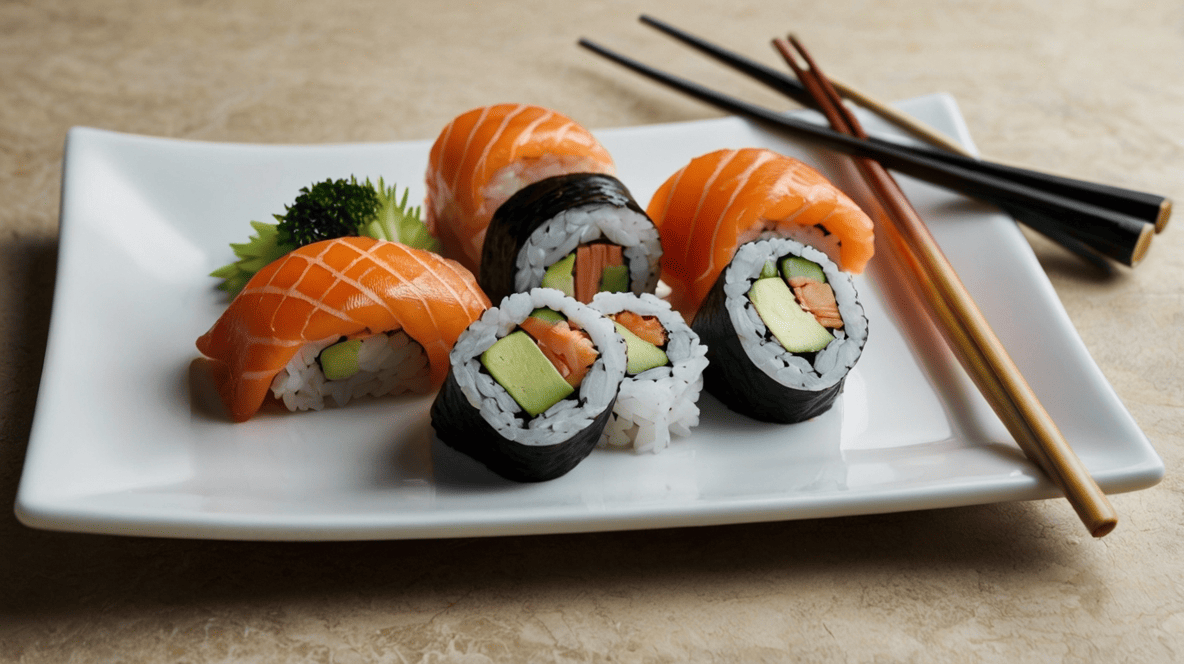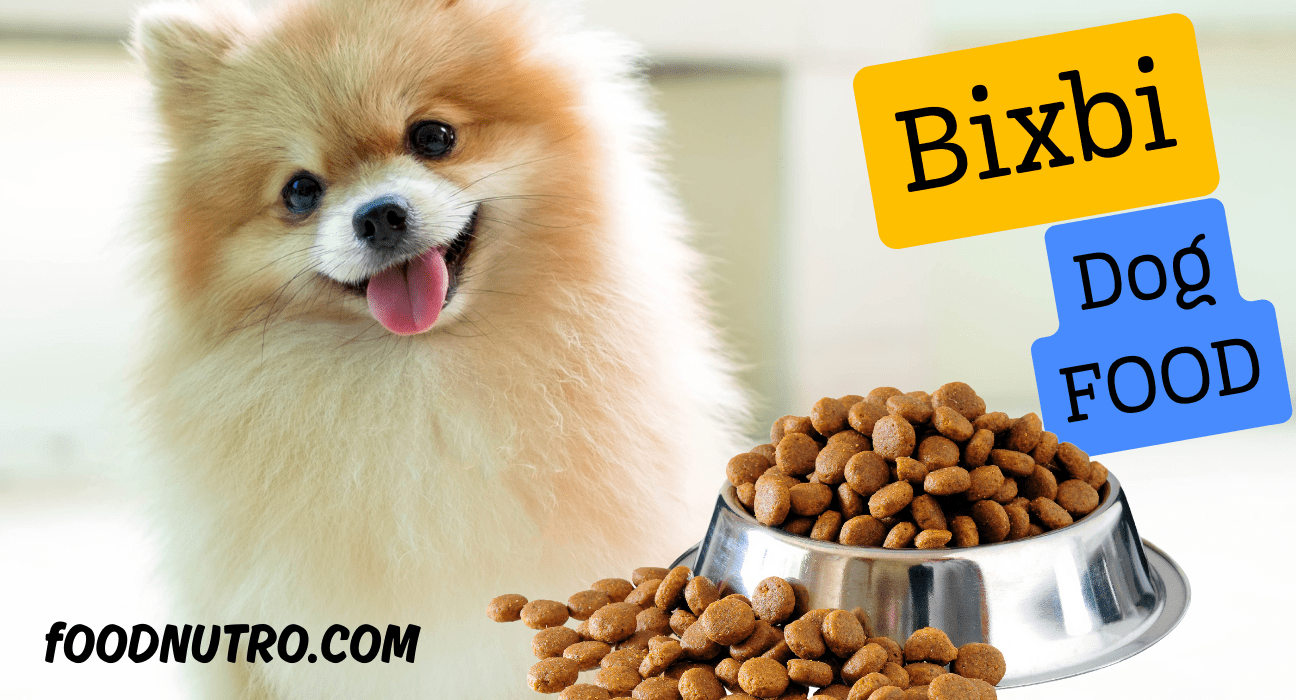Table of Contents
Sushi is a popular delicacy that many humans enjoy, but did you know that some ingredients in sushi can be harmful, or even dangerous, for dogs? While sushi may seem like a tempting treat to share with your furry friend, certain ingredients can pose serious health risks. In this article, we’ll explore the six most common ingredients in sushi that can be dangerous for dogs, and why you should keep them out of your pet’s diet.
1. Raw Fish
Sushi often features raw fish like salmon, tuna, and mackerel. While fish can provide essential omega-3 fatty acids and protein, feeding your dog raw fish is risky. Raw fish may carry harmful parasites such as tapeworms or bacteria like Salmonella and Listeria, which can cause serious infections in dogs. Even if the fish looks fresh, the risk of contamination remains. Additionally, certain types of fish, like tuna, contain high levels of mercury, which can be toxic to dogs over time.
dangers of raw fish for dogs, mercury poisoning in dogs, parasites in raw fish.
2. Soy Sauce
Soy sauce is commonly used as a dipping sauce for sushi, but it contains high levels of sodium. Excessive sodium can lead to salt poisoning in dogs, which can result in symptoms like vomiting, diarrhea, tremors, and even seizures. In severe cases, it may lead to kidney failure or death. Dogs don’t process sodium as effectively as humans, making even a small amount of soy sauce dangerous for their health.
soy sauce toxicity in dogs, salt poisoning in dogs, sodium poisoning symptoms in pets.
3. Wasabi
Wasabi, known for its strong and spicy flavor, can irritate a dog’s digestive system. While a tiny lick may not cause immediate harm, spicy foods like wasabi can lead to gastrointestinal distress, including vomiting, diarrhea, and abdominal pain. Dogs have sensitive stomachs, and foods that are too spicy can disrupt their natural digestive balance. It’s best to avoid giving them anything with wasabi.
spicy foods and dogs, wasabi dangers for dogs, gastrointestinal issues in pets.
4. Avocado
Avocado, often found in sushi rolls, contains a substance called persin, which can be toxic to dogs. While persin is more harmful to birds and some large animals, it can still cause vomiting and diarrhea in dogs if consumed in large quantities. Additionally, avocado is high in fat, which can contribute to pancreatitis in dogs, a painful and potentially life-threatening condition.
avocado toxicity in dogs, persin poisoning in pets, pancreatitis risk in dogs.
5. Nori (Seaweed)
While small amounts of nori, the dried seaweed used in sushi, may be safe for dogs, large quantities can cause issues. Nori is packed with iodine, which, if consumed in excess, can lead to thyroid problems in dogs. The salt content in seaweed can also cause dehydration and sodium imbalances. Additionally, wild seaweed found on beaches can be toxic if ingested by dogs due to pollutants and bacteria.
Nori seaweed and dogs, iodine toxicity in pets, seaweed dangers for dogs.
6. Rice Vinegar
Rice vinegar is often used to season sushi rice. While vinegar in small amounts may not harm your dog, too much can cause gastrointestinal upset. Dogs have a more delicate digestive system than humans, and vinegar can irritate their stomach lining, leading to symptoms such as nausea, vomiting, and discomfort. It’s best to avoid feeding your dog anything with vinegar.
Why You Should Avoid Feeding Sushi to Your Dog
While some sushi ingredients, like plain cooked fish, may be safe in moderation, many of the components in traditional sushi rolls pose significant health risks to dogs. From the danger of parasites in raw fish to the sodium overload from soy sauce, even a small bite of sushi can cause your dog distress. It’s always safer to stick to dog-friendly treats specifically designed for their nutritional needs.
What to Do If Your Dog Eats Sushi
If your dog accidentally consumes sushi, monitor them closely for signs of illness such as vomiting, diarrhea, lethargy, or excessive thirst. Contact your veterinarian immediately if your dog shows any symptoms of food poisoning or distress. In severe cases, such as when a dog consumes a large amount of soy sauce or raw fish, urgent medical attention may be necessary.
Conclusion
Although it may be tempting to share your favorite sushi roll with your dog, the risks far outweigh the benefits. Many sushi ingredients, including raw fish, soy sauce, wasabi, avocado, nori, and rice vinegar, can be harmful to your pet. To keep your dog safe and healthy, avoid feeding them sushi and stick to a balanced diet that’s tailored to their nutritional needs.
Frequently Asked Questions (FAQs)
1. Can dogs eat sushi safely?
No, dogs should not eat sushi. Many ingredients commonly found in sushi, such as raw fish, soy sauce, and avocado, can be harmful or even toxic to dogs. While a small amount of plain cooked fish might be safe, it’s best to avoid feeding sushi to your dog altogether.
2. What happens if my dog eats raw fish?
If your dog consumes raw fish, they may be at risk of parasitic infections, bacterial contamination, or mercury poisoning, depending on the type of fish. Symptoms may include vomiting, diarrhea, lethargy, and in severe cases, neurological problems. Contact your veterinarian if your dog shows signs of illness after consuming raw fish.
3. Is soy sauce toxic to dogs?
Yes, soy sauce is toxic to dogs because of its high sodium content. Even a small amount can cause salt poisoning, leading to symptoms such as vomiting, diarrhea, tremors, and, in severe cases, seizures or kidney failure. It is important to keep soy sauce away from your dog.
4. Can dogs eat avocado in sushi?
No, dogs should not eat avocado. Avocado contains a toxin called persin, which can cause vomiting and diarrhea in dogs. Additionally, avocado is high in fat, which can lead to pancreatitis, a potentially dangerous condition for dogs.
5. Is wasabi safe for dogs?
No, wasabi is not safe for dogs. The spiciness of wasabi can cause gastrointestinal irritation, leading to stomach pain, vomiting, or diarrhea. Dogs have sensitive digestive systems, and spicy foods like wasabi should be avoided.



